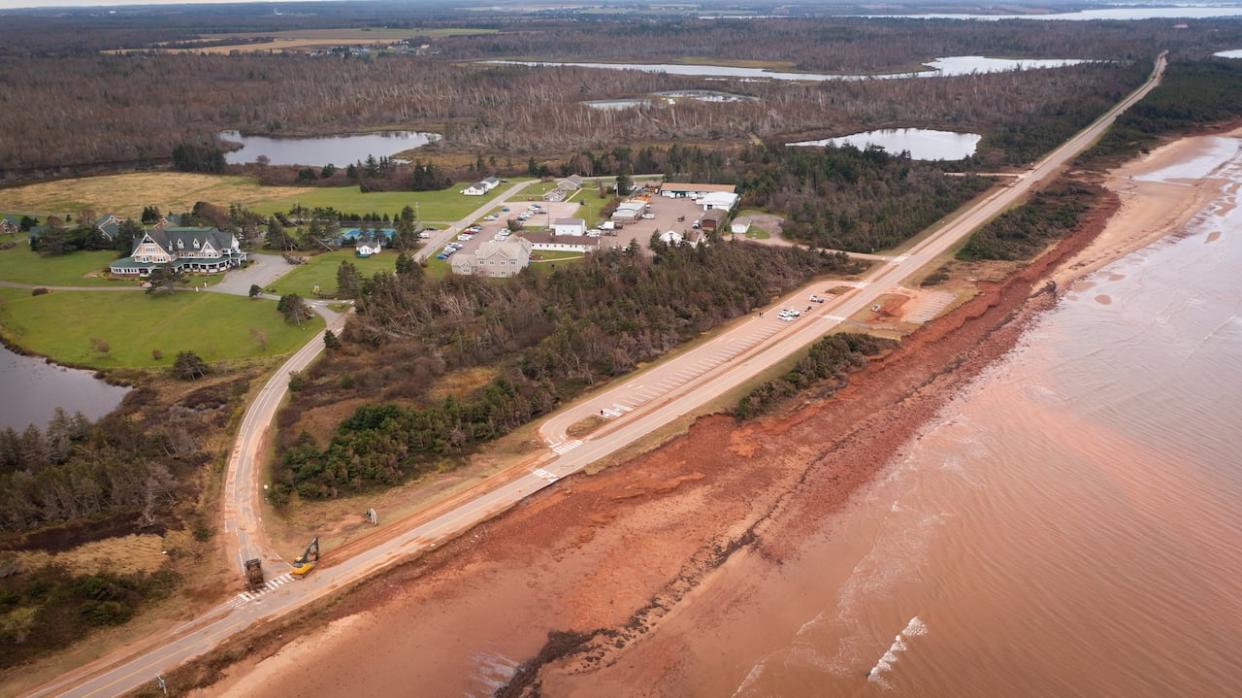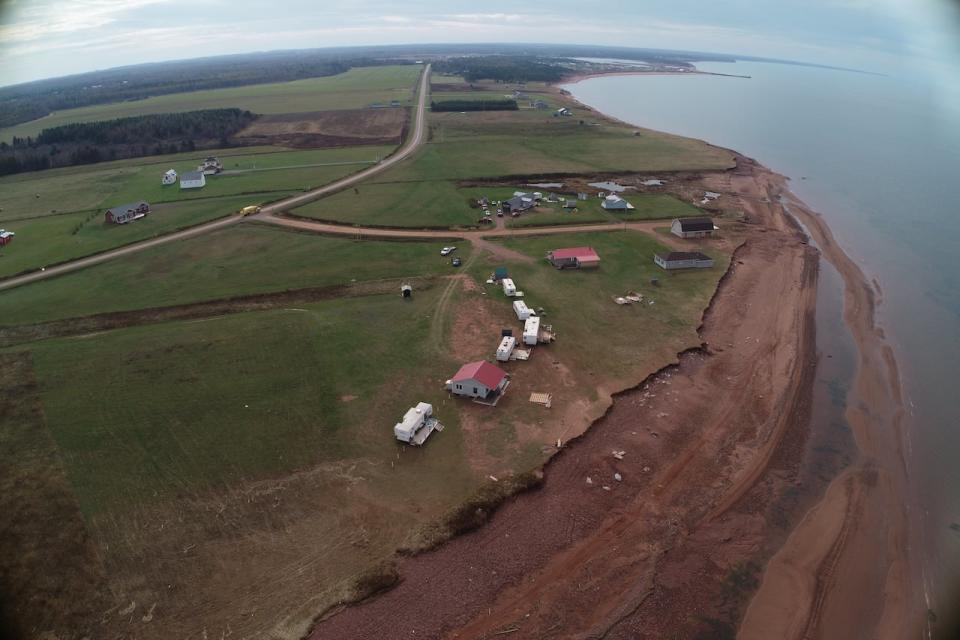New warning system can alert Canadians about coastal flood risks earlier

Environment Canada has expanded its ability to predict coastal flooding, and the new system now covers all of the country's coastlines.
It also allows the agency to predict coastal flooding five days in advance, up from two days under its previous system, said Carmen Hartt, a senior meteorologist with Environment and Climate Change Canada (ECCC).
The new system is called Coastal Flood Risk Outlook, and it will provide more specific warnings, Hartt said.
"There's going to be more detail."
ECCC has broken down the country's coastlines into grid cells that will be used to pinpoint exactly where coastal flooding events are expected.

A seven-metre shoreline loss was reported at P.E.I.'s Cape Gage Road after Fiona's winds stirred up a coastal flooding event in 2022. (UPEI School of Climate Change and Adaptation)
Prince Edward Island has 121 of these grid cells, each covering about nine kilometres of coastline.
The Coastal Flood Risk Outlook will tell users if the flood risk is low, medium, or high for any given day in any of those grid cells.
Coastal flooding, not storm surge
The agency has also updated its terminology for these events, replacing "storm surge" with "coastal flooding," a term Hartt said is more accurate and comprehensive.
"You can think of [a storm surge] as a component of coastal flooding," she said.
ECCC will still use the term storm surge, but as part of a larger coastal flooding event rather than an umbrella term.
For example, the information given in a coastal flood warning may include the expected storm surge, or may note that a flooding event will largely be caused by a storm surge.
"We want anybody to take a coastal flooding warning as seriously as they would have previously taken a storm surge warning," Hartt said.
According to a news release from Environment and Climate Change Canada, the technology used in the Coastal Flood Risk Outlook has been operational since May 15, but "complete regional implementation will take time."


